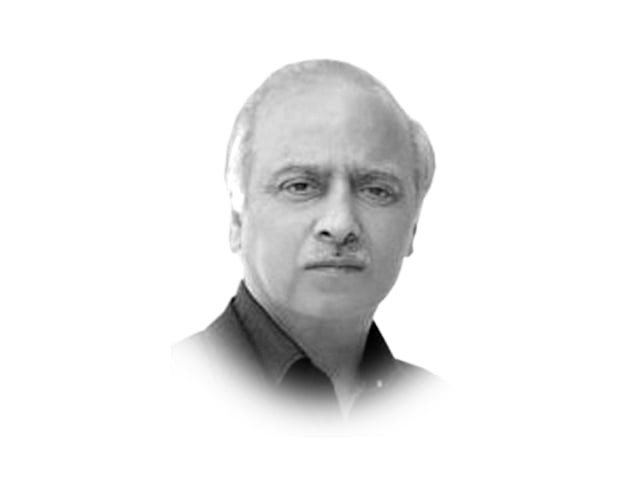Taxpayers’ money & media publicity of fraud
For change to happen, problems need to be placed under the public spotlight

Taxpayers’ money & media publicity of fraud
The US Special Inspector General gave this biting conclusion in a rare, blistering critique at Georgetown University, Washington, DC (September 12, 2014) saying, “It appears we’ve created a government that the Afghans simply cannot afford.” He said that the US had spent more than $104 billion for Afghan reconstruction but “what have we gotten for the investment” after committing “more funds to reconstruct Afghanistan, than the US spent to rebuild Europe after World War II under the Marshall Plan?”
SIGAR was created in 2008 by Congress to provide “independent and objective oversight of the US reconstruction effort in Afghanistan”. Sopko’s questions on the “reckless” US spending in Afghanistan offers food for thought to Pakistanis, who wonder how the ruling elite and bureaucracy play havoc with the taxpayers’ money without fear of accountability.
“I was stunned when senior state department officials on my first trip to Kabul suggested how we should write our reports. They even suggested changes to our report titles and proposed that we give them our press releases in advance so they could pre-approve them,” Sopko said, referring to the high-handed attitude of bureaucratic and military officials on ground.
Sopko underscored how SIGAR’s interventions saved hundreds of millions of dollars from being criminally wasted in wrongly prioritised projects. Federal contract officials don’t bother to make site visits, fail to keep proper documentation, fail to enforce standards and fail to ensure work is done before accepting it, he said.
At the same time, he spoke of the utmost importance of publicising fraud or misappropriation of American taxpayers’ money.
“I admit, some ambassadors and generals and nameless, faceless bureaucrats and contractors are unhappy with the fact that we get press coverage, even though our two-person press shop pales in comparison to the squadrons of public relations people at the Kabul embassy, Isaf, or the Pentagon. But that is the cost of transparency and open government.”
One audit of the Department of Defense’s plans for the Afghan National Security Forces saved nearly half a billion dollars for American taxpayers because SIGAR was able to identify areas where there was duplication and unnecessary expenditure. Audit and its publication, according to Sopko, was critical to saving American and Afghan lives and ensuring that the funds were going to the right place in the right way. He also quoted the example of a contractor who got paid but never installed culvert denial systems on roads, resulting in deaths of two US servicemen to IEDs.
Nothing will change if you don’t publicise these problems, the inspector general concluded. “For change to happen, problems need to be placed under the public spotlight.”
Sopko calls it “the foundation of oversight and good governance”, and declares that the taxpayer has the right to know how his or her money is being spent, he underscored.
Though it sounds quite revolutionary, it is actually acceptable and functional in inclusive democracies. That’s why Sopko’s views should serve as a guide for all those Pakistanis who wonder how the elitist governance gobbles up the taxes it collects from its citizens. GST, Zakat Fund, anyone? On VIP security, Hajj quotas, multiple cars for ministers and officials, handouts from Baitul Maal to party cronies or their handpicked nominees? Sponsorship of foreign tours or internal travelling, particularly for media professionals, families of high-placed officials, or medical expenses for treatment abroad for the ruling elite? These are some of the avenues that eat up the public money. Doesn’t the Pakistani public have a right to know how the government uses its tax revenues? Does the auditor general of Pakistan — though not comparable with that in the US — do his job in exposing the financial crimes committed within the governance structures?
Published in The Express Tribune, October 1st, 2014.
Like Opinion & Editorial on Facebook, follow @ETOpEd on Twitter to receive all updates on all our daily pieces.
















COMMENTS
Comments are moderated and generally will be posted if they are on-topic and not abusive.
For more information, please see our Comments FAQ